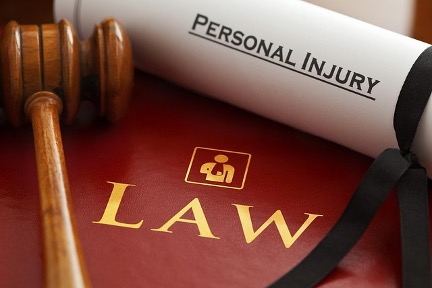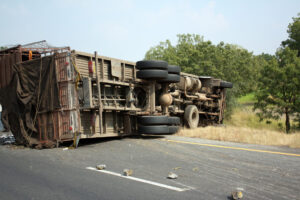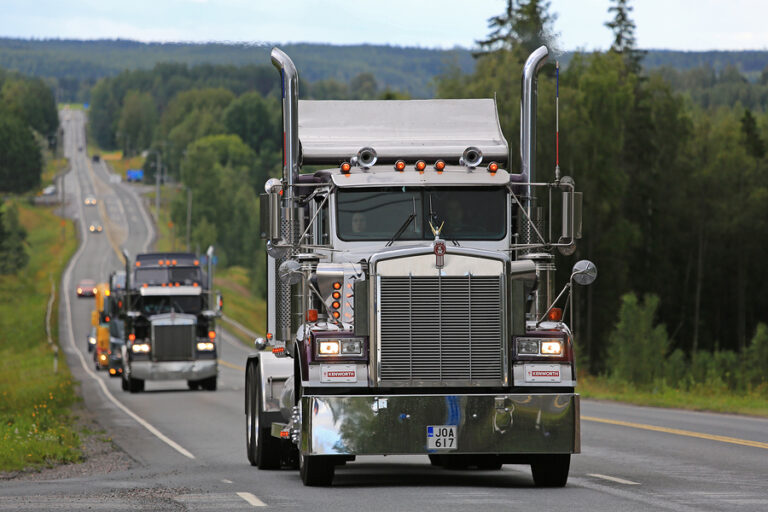Birth Injury Lawyers Near Minnesota
Jeff
on
September 3, 2025
Key Personal Injury Takeaways
-
- Experience with Minnesota-specific birth injury laws protects victims of medical negligence and ensures just results in court.
-
- Birth injury lawyers near Minnesota, such as Premier Injury Attorneys, can understand and help you navigate the state’s legal framework, such as statutes of limitations and damage caps
-
- To prove negligence, you’ll need to collect medical records, expert testimony, and demonstrate a breach of duty according to Minnesota’s standard of care.
-
- It’s lawyers at Premier Injury Attorneys who are essential in calculating those long-term costs, negotiating with insurers, and getting fair compensation for families who are affected.
-
- Common birth injuries like cerebral palsy, eryth’s palsy, and hypoxic-ischemic encephalopathy are the result of preventable medical mistakes.
-
- Minnesota birth injury lawyer at Premier Injury Attorneys navigates emotional support and local resources, helping families through legal and financial planning.
A birth injury lawyer near Minnesota, such as Premier Injury Attorneys, specializes in providing legal support for families facing the challenges of birth-related injuries. These attorneys at Premier Injury Attorneys specialize in medical malpractice, misdiagnoses, or negligence during labor and delivery. With extensive experience in Minnesota’s healthcare laws, they assist families in seeking just compensation for medical bills, ongoing care, and emotional distress. Knowing your legal options is essential, and our guide below discusses how these experts can help you navigate challenging times.

Why Minnesota Law Matters
Here’s why Minnesota law matters in your birth injury case. Minnesota’s rules and regulations affect every part of how claims are processed, from defining the standard of care to the valuation of damages. As we discuss below, this is why Minnesota birth injury law matters.
Standard of Care
Doctors in Minnesota owe you a specific standard of care. This standard is grounded in what a reasonably capable and experienced provider would do in a similar situation. When doctors and nurses fall short in these expectations—whether overlooking obvious symptoms of fetal distress or misapplying delivery instruments—it can cause catastrophic birth injuries, including cerebral palsy or Erb’s palsy.
This is where expert witnesses are crucial — to demonstrate that a breach of the standard of care occurred. These professionals examine medical records and testify about what ought to have been done differently. In addition, Minnesota law requires a “certificate of expert review,” which must be filed within 180 days after instituting suit. This caveat guarantees that legitimate medical data support assertions. If the standard of care is shown to have been breached, Minnesota law holds negligent providers accountable — and allows families to seek justice for their children.
Statute of Limitations
Minnesota law regarding statutes of limitation has specific deadlines for filing a birth injury lawsuit. Parents typically have four years from the injury date to file on behalf of their child. Minnesota, unlike many states, does not abide by the discovery rule, so the clock begins to run when the damage is done, not when it’s discovered. This, therefore, makes it critical to move fast.
There are exceptions, like for minors or special circumstances, but they’re few and far between. Taking action quickly saves evidence, which is crucial for establishing a solid case. Medical records, witness accounts and expert evaluations all may weaken over time. A Minnesota birth injury lawyer at Premier Injury Attorneys makes sure that these deadlines are met so the case isn’t dismissed on procedural grounds.
Damage Caps
That means victims can recover both economic damages, such as medical bills and long-term care costs, as well as non-economic damages, including pain and suffering. The table below outlines key damage types:
| Type of Damage | Examples |
| Economic Damages | Hospital bills, rehabilitation costs, lost income |
| Non-Economic Damages | Emotional distress, loss of quality of life |
Although there are no caps on what you can be compensated, insurance companies usually want to pay as little as possible. Experienced lawyers at Premier Injury Attorneys use this no-cap system in settlement negotiations — so families get what they deserve. Minnesota law expertise is crucial to optimizing long-term need compensation.
How a MN Birth Injury Lawyer Help
When a birth injury is caused by medical malpractice, families are left to grapple with the emotional and financial aftermath — plus, the legal battle. A Minnesota birth injury lawyer at Premier Injury Attorneys provides essential guidance to navigate these difficulties, helping families seek justice and compensation for lifelong care.
Proving Negligence
Proving medical malpractice is integral to any birth injury case. In MN, that’s proving a healthcare provider caused injury by not providing the standard of care. A lawyer starts by collecting medical records and working with medical experts to analyze the injury. These experts testify on whether there was a breach of duty and connect it to the injury.
To prove error or negligence, you also have to prove causation, or that the injury was a direct result of the provider’s action or inaction. This may not be easy, particularly when dealing with prior conditions or unexpected difficulties.
They put their knowledge to work for you, crafting a compelling case through meticulous evidence review, expert witness coordination, and clear liability demonstration.
Calculating Future Costs
The costs of a birth injury can last a lifetime. Lawyers collaborate with financial experts and life care planners, who can help determine the child and family’s needs in the long term. Such as projecting expenses for therapies, surgeries, adaptive equipment, and other medical attention, as well as lost wages if parents need to scale back work to offer care.
Accurate calculations are crucial to ensuring that families receive compensation that adequately covers these costs. Apart from medical needs, lawyers at Premier Injury Attorneys take into account non-economic damages, including pain, suffering, and diminished quality of life. By fully accounting for these factors, they help secure fair settlements that cover both the immediate and long-term financial strains.
Navigating Deadlines
Minnesota’s statute of limitations for birth injury cases is usually four years, but there are some exceptions. If you miss these dates, you may lose your right to take legal action. Experienced attorneys at Premier Injury Attorneys handle these timelines, making sure filings and other legal processes are filed timely. They stay on top of Minnesota’s specific legal requirement to keep the case compliant and on track.
Securing Expert Testimony
Medical experts are essential in birth injury cases. A lawyer locates credible professionals to back the claim, either by affidavit or testimony. They educate the court on technical issues, like the standard of care or how the negligence led to the injury. Compelling expert testimony can sway not only courts but settlement discussions as well, which is why they’re so crucial to the case.
Fighting Insurers
Insurance companies often aim to minimize payouts, using tactics like disputing liability or undervaluing claims. A MN birth injury lawyer fights against these tactics by focusing on evidence and fighting hard for the family. Their legal expertise makes sure families aren’t coerced into unjust settlements so they can receive what they are owed.
Common Minnesota Birth Injury Claims
Minnesota birth injury cases are frequently the result of medical malpractice, and the most common claims include improper fetal monitoring, delayed treatment of complications, or misuse of delivery instruments. These injuries create lifelong challenges and costs that can reach into the tens of thousands and millions. Here are common Minnesota birth injury claims and how lawyers at Premier Injury Attorneys approach them.
-
- Oxygen deprivation or trauma during delivery led to cerebral palsy.
-
- Erb’s palsy — commonly associated with Rough Handling during Shoulder Dystocia.
-
- HIE due to a lack of oxygen to the brain.
-
- Birth-related fractures or nerve damage from outdated or aggressive forceps or vacuum delivery.

Legal cases hinge on showing negligence — i.e., that a doctor did not meet the standard of care and as a direct result, caused damage. Attorneys craft personalized plans to meet the unique conditions of each injury, helping families secure compensation for medical bills, therapy, and lifelong care.
Cerebral Palsy
Cerebral palsy (CP) is a neurological disorder that affects movement and coordination, and frequently necessitates extensive lifelong care. Common needs include:
-
- Physical therapy to improve motor skills and mobility.
-
- Assistive devices like wheelchairs or communication tools.
-
- Ongoing medical treatments and personal care assistance.
Medical malpractice, including ignoring indications of fetal distress and/or postponing necessary C-sections, can result in brain damage that causes CP. These mistakes commonly stem from subpar oversight or subpar reactions to crises. Minnesota attorneys at Premier Injury Attorneys fight for compensation, treatment, therapy, adaptive equipment, and more so that children suffering from CP get the care they deserve.
Erb’s Palsy
Erb’s palsy is a nerve injury to the shoulder that happens during birth, frequently in connection with shoulder dystocia. Poor pushing techniques during delivery – including pulling or turning the baby too much – can stretch or tear the brachial plexus nerves. This injury may result in:
-
- Permanent nerve damage, limiting arm and shoulder function.
-
- Decreased movement or even paralysis in extreme cases.
Attorneys analyze medical files and interview specialists to demonstrate malpractice, homing in on mistakes such as excessive force or mishandling complications.
Hypoxic-Ischemic Encephalopathy
Hypoxic-ischemic encephalopathy (HIE) is a serious birth injury caused by oxygen deprivation. Typical reasons are umbilical cord complications, insufficient fetal monitoring, or a postponed intervention in labor. HIE can lead to:
-
- Cognitive impairments and developmental delays.
-
- Seizures, motor dysfunctions, and other long-term complications.
When handling Minnesota birth injury cases, we evaluate the medical care for avoidable mistakes and use expert analysis to determine who was responsible. Damages sought include medical treatment, therapy, and ongoing support.
The Unseen Battle: Beyond the Courtroom
Birth injuries impose emotional, financial, and physical scars on families. The fight after the fact is rarely solely legal. Those families in Minnesota, dealing with these all-too-real, life-altering events, deserve caring and comprehensive assistance to help them put their lives back together.
Emotional Support
The emotional toll of a birth injury can ravage families. Parents might feel grief, guilt, anger or confusion, especially when developmental delays or physical challenges emerge as time passes. These emotions can be exacerbated as they confront the unknowns of their child’s future.
A good birth injury lawyer knows these emotional battles and offers more than legal counsel. Their primary role is to manage the legal process, and their empathetic counsel helps families feel supported during this challenging time. By truly listening and offering information in an accessible, compassionate way, lawyers at Premier Injury Attorneys can relieve a portion of that emotional weight.
Dealing with the trauma is as essential as seeking justice. Many legal teams now work with counselors or psychologists who specialize in trauma related to medical malpractice. This comprehensive approach respects what families’ hearts and souls need as much as it does their legal needs. A caring law firm like Premier Injury Attorneys can make a world of difference, assisting families who would otherwise be alone in such an extensive legal process, which, depending on the case, can take months or years.
Financial Planning
The costs of a birth injury can be enormous. Ongoing medical treatments, therapy, and specialized care can be taxing even for the most well-equipped families. Lawyers play a crucial role in securing compensation to cover these long-term costs.
Veteran lawyers at Premier Injury Attorneys sometimes even work with accountants to figure out the complete cost of future medical care. That’s not to mention therapies, adaptive equipment, and possible lost wages from providing the care. They contend with complicated fee schedules, seeking both economic and non-economic damages, which a few states permit without caps.
They need proactive financial strategies. Without strategic planning, families are in danger of going broke. By fighting for settlements or trial verdicts that reflect the actual cost of care, attorneys at Premier Injury Attorneys allow families to prioritize healing instead of worrying about the bills.
Community Resources
Local resources in Minnesota offer incredible assistance to families of birth injury victims. Lawyers may refer clients to organizations such as the Minnesota Brain Injury Alliance, support groups, or early intervention programs that target specific developmental challenges.
Advocacy groups are essential for highlighting and educating on birth injuries. Connected lawyers at Premier Injury Attorneys can network families to these resources, providing customized support. Constructing a care network — composed of therapists, teachers, and fellow parents — allows families to face the battle ahead.
The Legal Process in Minnesota
Guiding a Minnesota birth injury case requires an in-depth knowledge of the state’s legal process. From the filing fees to potential settlements, families navigate a process that mixes take-your-time preparation with hard and fast rules and deadlines.
| Step | Details |
| Initial Consultation | Meeting with an attorney to discuss case details and legal options. |
| Investigation | Collecting records, evidence, and expert opinions to identify negligence. |
| Filing the Lawsuit | Submitting a formal complaint along with a certificate of expert review. |
| Settlement or Trial | Negotiating a resolution or presenting the case in court if no agreement is reached. |
Initial Consultation
The initial consultation is the first and crucial step in determining the viability of a birth injury claim. During this meeting, clients discuss the circumstances surrounding the injury, including medical records, timelines, and potential negligence. Attorneys evaluate whether the case meets Minnesota’s legal standards for medical malpractice, paying close attention to factors like the statute of limitations and the availability of evidence.
This meeting often brings relief to families, who now have a clearer understanding of possible outcomes and legal options. Most birth injury attorneys at Premier Injury Attorneys, like Premier Injury Attorneys, provide complimentary consultations, letting families test the waters without any financial risk. This does more than instill confidence — it provides clients with specific recommendations tailored to their unique circumstances.
Investigation
The investigative phase involves a thorough examination of medical records, diagnostic studies, and other relevant evidence. Our lawyers at Premier Injury Attorneys collaborate with medical professionals to seek any departures from the standard of care that could have caused the injury. For negligence in Minnesota, it often comes down to expert testimony, which is why a certificate of expert review needs to be filed with or within 180 days of filing a lawsuit.
Attorneys may interview witnesses, such as nurses or attending physicians, to fortify the case. This thorough preparation ensures that no details are missed, thereby establishing a strong argument, whether in court or at the negotiating table.
Filing the Lawsuit
To file a lawsuit in Minnesota, you need to observe procedural rules. It starts with filing a complaint. Minnesota requires a certificate of expert review, which states that a qualified medical expert has reviewed the matter and found it credible.
Filing within the set deadline is imperative. There is a four-year statute of limitations for birth injuries, but there are exceptions when it comes to minors — you can file up to the child’s 19th birthday. In Minnesota, failure to meet these deadlines will result in the claim being dismissed, making this step critical when seeking redress.
Settlement or Trial
Whether it settles or goes to trial, it all hinges on a variety of factors, such as how strong the proof is and if both sides want to make a deal. Quite a few of them settle out of court, and compensation varies quite a bit based on the extent of damage. Settlements could be in the ten-thousand-to-a-few-million-dollar area, depending on medical bills and long-term care.
If a trial is needed, it can be a year-long process. A skilled attorney is key to putting together a robust case, whether you’re dealing with insurance companies or a judge and jury. The result of a trial could change a family’s life, which is why quality legal representation is so crucial.
Finding Premier Injury Attorneys
What to Look for in a Birth Injury Lawyer Near Minnesota. Birth injury cases are complicated and require attorneys at Premier Injury Attorneys with particular experience and a proven track record. The right attorney can mean all the difference in obtaining justice and compensation for families. Here are the things to look for in finding premier injury attorneys at Premier Injury Attorneys.
Local Experience
Selecting an experienced Minnesota lawyer is essential. Minnesota lawyers at Premier Injury Attorneys know local issues, like the state’s medical malpractice laws and deadlines — all of which affect birth injury claims. A lawyer who regularly practices in Minnesota courts will likely know the preferences of local judges and opposing attorneys at Premier Injury Attorneys, giving them strategic insight into how to approach the case.
Knowledge of state laws is just as vital. For instance, Minnesota has expert witness qualifications rules for medical malpractice claims, which a local attorney would be well-versed in handling. Having good contacts within the Minnesota legal community can be beneficial. An attorney with ties to local medical professionals can more readily assemble trustworthy testimony to reinforce the claim.
Proven Results
An attorney’s record speaks volumes to their skill and trustworthiness. Examining their record of verdicts and settlements in birth injury cases can determine if a lawyer has experience successfully litigating similar claims. For example, a lawyer with big wins for families with cerebral palsy or Erb’s palsy knows how to get results.
Demonstrated success additionally highlights an attorney’s talent for constructing convincing cases and bargaining with insurers. For instance, a law firm like Premier Injury Attorneys, which has secured multi-million-dollar settlements on behalf of birth injury clients, broadcasts its dedication to top-dollar compensation. Not only does this demonstrate expertise, but it also puts families at ease, knowing that experienced hands are handling their case.
Contingency Fees
Contingency fee arrangements allow for representation by Premier Injury Attorneys for families who medical bills might financially burden. With this, clients pay nothing unless the lawyer wins or secures a settlement. This guarantees that attorneys at Premier Injury Attorneys have a vested interest in obtaining the optimal result.
Be transparent about your fees. Premier attorneys at Premier Injury Attorneys provide transparent contracts that detail any possible expenses and deductions, so families are aware of what to expect. Frequently, they offer complimentary initial consultations, allowing families to discuss their case with them without incurring any costs. It demonstrates their dedication to client-focused service.
Conclusion
Navigating a birth injury case in Minnesota can be overwhelming, but the right lawyer makes all the difference. An experienced birth injury lawyer brings more than advocacy—they get relief, direction, and a roadmap to healing for your family. They understand how to fight the specialized nuances of Minnesota law and fight for the settlement you deserve.
Selecting a birth injury lawyer near Minnesota, such as Premier Injury Attorneys, with experience guarantees that your case receives the focus it deserves. Their focus on your family’s well-being lets you advance with confidence. When you’re ready to make your move, reach out to a reputable Minnesota birth injury lawyer at Premier Injury Attorneys now. The right advocate can illuminate the process and provide you with the support you require.
Frequently Asked Questions
What does a birth injury lawyer in Minnesota do?
A birth injury lawyer near Minnesota, such as Premier Injury Attorneys, helps families pursue justice when medical malpractice results in harm during delivery. They offer expert counsel, dig into the details of claims, and battle for maximum compensation to cover medical bills, therapy, and emotional damages.
When should I contact a birth injury lawyer in Minnesota?
Contact us as soon as you suspect a birth injury due to medical negligence. Minnesota has a statute of limitations for filing claims. Time is of the essence to get your case processed.
What are common birth injuries seen in Minnesota claims?
Birth injuries such as cerebral palsy, Erb’s palsy, brain damage, or fractures during delivery. An attorney can find out if negligence caused these injuries.
How much does hiring a birth injury lawyer in Minnesota cost?
Most Minnesota birth injury lawyers at Premier Injury Attorneys probably take cases on contingency. That is, you pay nothing unless they win your case, bringing legal assistance within the reach of families.
Can I file a claim for a birth injury caused years ago?
It falls under Minnesota’s statute of limitations. Certain exceptions, such as finding injuries at a later point, can extend the deadline. A lawyer can evaluate your case and counsel you on deadlines.
What makes Minnesota’s birth injury laws unique?
Under Minnesota law, you must show that medical negligence caused the injury. The state has special malpractice filing rules, including the requirement of expert medical testimony.
How do I find the best birth injury lawyer in Minnesota?
Find Minnesota medical malpractice lawyers at Premier Injury Attorneys. Check reviews, inquire about previous results rates and make sure they provide free case evaluations.








